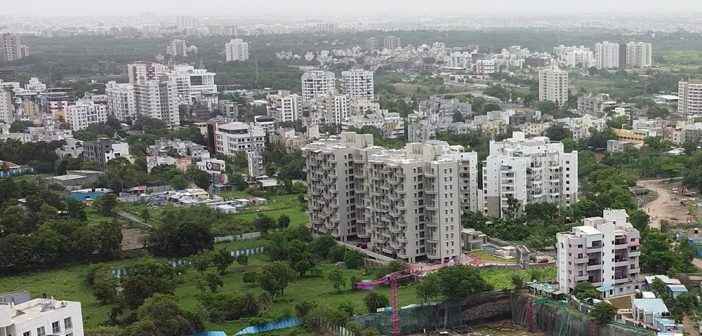Pune’s real estate market has emerged as one of the most attractive investment destinations in India, owing to its rapid urbanization, growing IT industry, and expanding infrastructure. The city, once known for its education institutions and cultural heritage, is now a thriving economic hub with high real estate demand. With the development of adjoining areas and favorable government policies, real estate investment in Pune is increasingly becoming a lucrative option, offering both immediate and long-term benefits.
Key Reasons to Invest in Pune Real Estate
- IT and Industrial Growth Driving Demand
Pune’s booming IT and industrial sectors have led to a sharp rise in residential and commercial real estate demand. Areas such as Hinjewadi, Kharadi, and Magarpatta are home to many IT parks, which have spurred residential developments nearby. Thousands of professionals working in these tech hubs look for convenient housing options, leading to a rise in both rental and property purchase demand.
The Pune-Mumbai industrial corridor, further bolstered by areas like Pimpri-Chinchwad, Chakan, and Talegaon, also hosts manufacturing and automotive giants. This diversified economic base ensures that demand for real estate remains robust across multiple sectors.
- Steady Property Appreciation
Pune’s real estate market has shown consistent appreciation over the past decade, with property prices steadily increasing. Data suggests that over the last five years, residential property prices in Pune have appreciated by 5-7% per annum, making it a stable and growing market.
Specific locations like Kharadi, Baner, and Wagholi have witnessed higher appreciation rates due to their proximity to IT hubs, enhanced infrastructure, and overall development. With rapid urbanization and future infrastructure projects in the pipeline, these areas are expected to continue delivering solid returns.
- Infrastructure Development
Infrastructure development is a key factor driving the growth of Pune’s real estate market. Projects such as the Pune Metro, planned to connect major areas across the city, are expected to drastically reduce travel time, making previously less accessible areas more attractive for homebuyers.
Additionally, the expansion of highways and the proposed Ring Road connecting Pune to adjoining areas will boost connectivity to key industrial belts and economic zones. The completion of the Mumbai-Pune Expressway and ongoing improvements to the Pune-Bangalore Highway are further contributing to the city’s accessibility, ensuring strong future demand for real estate in these regions.
- Upcoming and Developing Areas: High Potential for Returns
Investing in developing areas like Wagholi, Undri, and Tathawade offers a chance for higher capital appreciation as these localities are still in the early stages of growth. Given their affordability compared to central Pune, they have attracted significant interest from first-time homebuyers and investors looking for rental income opportunities.
As these areas develop their own commercial hubs, educational institutions, and healthcare facilities, the property prices are likely to appreciate sharply in the coming years. For example, Wagholi has shown nearly 30% price growth in the past three years, fueled by proximity to the IT corridor and strong infrastructural developments.
- Rental Yields and Investor-Friendly Market
Pune offers attractive rental yields compared to other major cities in India. In prominent areas like Kalyani Nagar, Viman Nagar, and Baner, rental yields range between 3-4%, which is relatively high compared to cities like Mumbai. This makes Pune an excellent choice for investors looking to generate consistent rental income alongside property appreciation.
The increasing migration of working professionals, students, and expatriates has bolstered the rental market, ensuring a steady demand for rental properties. The influx of IT professionals and students to Pune’s many prestigious educational institutions keeps the rental demand robust, especially in areas with good connectivity.
- Government Initiatives and Policies
Government initiatives such as the Real Estate (Regulation and Development) Act (RERA) have helped bring transparency to the Pune real estate market, providing assurance to buyers and investors. The Smart City initiative in Pune, focusing on improving infrastructure, public services, and sustainable urban planning, has enhanced the city’s appeal as an investment destination.
Additionally, the state government’s focus on affordable housing and infrastructure growth has spurred real estate developments in and around Pune. Under the Pradhan Mantri Awas Yojana (PMAY), homebuyers can also benefit from subsidies, making it easier for middle-class families to invest in property.
Anticipated Returns and Long-Term Benefits
Pune’s real estate market offers substantial long-term returns for both residential and commercial properties. Property appreciation in established areas is expected to remain in the range of 5-8% annually, while developing areas could see price escalations of 10-12% per year as infrastructure develops.
Rental income is another key benefit, with yields ranging between 3-4%. Investors can anticipate a steady flow of rental income, particularly in areas surrounding IT parks and educational institutions. As Pune continues to evolve into a major urban center, property prices in key areas will rise, providing substantial long-term capital gains.
Conclusion
Investing in Pune’s real estate market presents a sound opportunity for investors looking to secure long-term returns, driven by the city’s economic growth, infrastructure developments, and increasing population. With the right strategy, investments in both prime and developing areas can yield substantial returns, making Pune one of the top real estate investment destinations in India. The city’s blend of urban and industrial growth ensures that demand for property remains high, promising consistent returns for those willing to invest.





